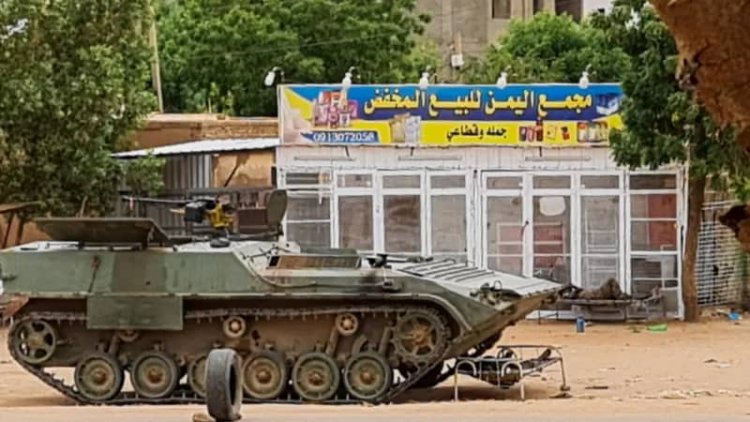Sudan crisis: Air strikes hit Khartoum despite truce
Despite the army's overwhelming firepower, BBC correspondent notes that the paramilitaries are highly mobile and better suited to urban warfare, making it difficult for the army to drive the RSF out of Khartoum.

Despite a ceasefire intended to allow civilians to leave, air strikes have pummeled Khartoum, the capital of Sudan.
The Rapid Support Forces (RSF), the army's paramilitary adversaries, were being chased out of the city, the army claimed.
Even when the warring parties announced they would prolong the ceasefire by a further three days, the violence got worse.
The actual number of casualties is thought to be substantially higher than the stated 500 dead. Many people are still stranded in Khartoum.
Gen. Abdel Fattah al-Burhan, the commander of the army, and Gen. Mohamed Hamdan Dagalo, often known as Hemedti, the head of the RSF, are competing for control.
They clash particularly over proposals to integrate the RSF into the army.
Following intensive diplomatic efforts by neighboring nations, the US, UK, and UN, the generals decided on a humanitarian ceasefire. Despite being extended, it failed to hold.
According to the army, it is yet unclear what they will do in the following phase of the agreement reached with US and Saudi mediation.
Sudanese businessman and philanthropist Mo Ibrahim claims that the nation is currently engaged in a civil war and that it must be prevented from crossing international borders and spreading to other parts of the world.
He told the BBC, "We don't want another Syria," and he added that it was difficult for one side to triumph completely.
While the fighting is primarily concentrated in Khartoum's north, close to the meeting point of the Blue and White Niles, BBC diplomatic correspondent Paul Adams, who is following the situation from Nairobi, Kenya, reports that residents all over the city are huddled inside their homes and debating whether it is safer to stay or leave.
The army claimed it had launched operations against RSF troops north of the city center before Sunday's announcement of the extension.
Checkpoint 'gamble'
On Monday, the World Food Programme announced that it was resuming its operations in Sudan, reversing its decision to pull out two weeks ago, after three of its staff were killed when fighting erupted in Khartoum.
One of those unable to evacuate is Hamid Khalafallah from the Tahrir Institute for Middle East Policy.
"When there is a very loud bombing and it gets closer, we take cover in the house, try to all congregate in a central room, far from windows, far from walls, and so on, and just lay on the floor until it passes," the woman said.
When the distance is greater, he said, "we try to use the few quiet hours we get each day to just quickly go out and get what we need, which is also very risky but we have to do it."
According to Mr. Khalafallah, there are numerous RSF checkpoints in his neighborhood, and residents must risk their lives to get past them.
It mainly involves gambling. They occasionally let you through and occasionally don't. It's quite sporadic; sometimes they shoot at you, sometimes they steal your things," he continued.
The nation has received its first significant relief flight, loaded with medical supplies.
According to the International Committee of the Red Cross (ICRC), a plane carrying eight tonnes of relief materials, including medical kit supplies for hospitals, landed at Port Sudan.
"With hostilities still ongoing, ICRC teams will need guarantees of safe passage from the parties to the conflict to deliver this material to medical facilities in locations with active fighting, such as Khartoum," a statement said.
More than 70% of health facilities in the capital have been forced to close as a result of the fighting that erupted on 15 April.
Foreign countries have been evacuating their nationals amid the chaos.
Two days after stating that its operation to evacuate British people had come to a conclusion, the UK government stated on Sunday that it will organize one final evacuation flight on Monday.
Those who wanted to evacuate were advised by the Foreign Office (FCDO) to get to the Port Sudan evacuation station by 12:00 (10:00 GMT). According to the FCDO statement, 2,122 persons have been evacuated thus far.
More US citizens will be evacuated by ship to Jeddah in Saudi Arabia by a convoy organized by the US that has arrived in Port Sudan. In addition to the diplomats who were evacuated by plane a week ago, it claimed that hundreds of Americans had already fled.

 Boakyewaa Lawrencia
Boakyewaa Lawrencia 


































